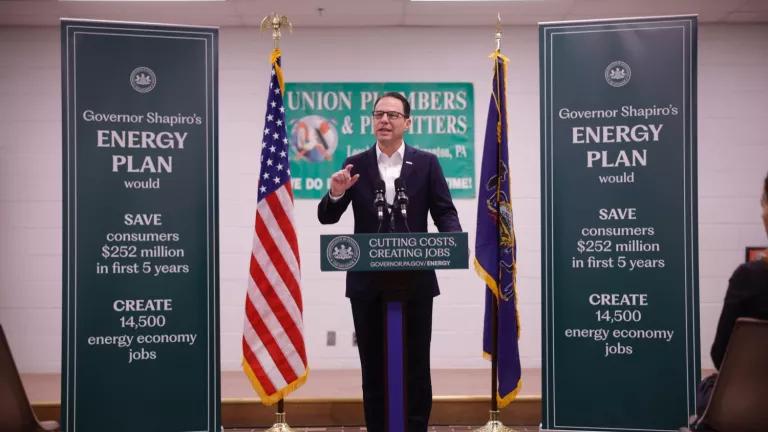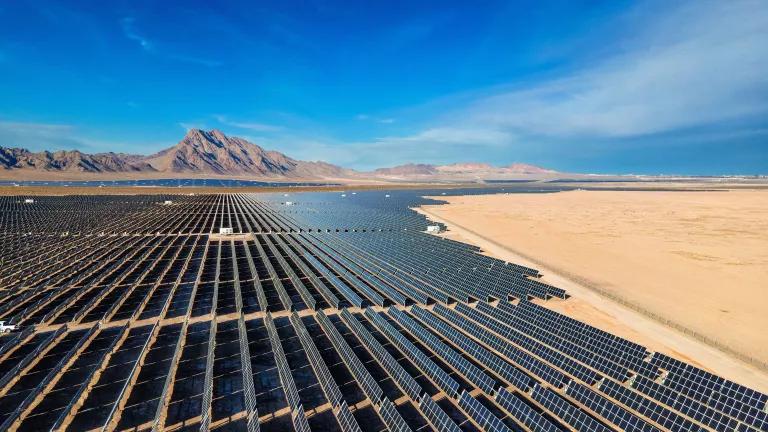The Energy Shift Approaches as Fossil Finance Dries Up

Coal has long been in decline, but with financial giants rethinking oil and gas, and a major proposed oil project folding, is the end in sight for new fossil fuel projects as well?
Around the globe, energy and urgency is growing to limit human-driven climate change as quickly as possible. A youth movement, responding to rising anxiety about a future dominated by climate change and the grim realities climate models foretell, is growing on a daily basis. Their battle? Take on the fossil fuel industry, the single largest contributor to our shared climate crisis.
Finding its future less certain than ever, fossil fuel giants insist they will play a positive role in reining in climate change, while their actions tell a totally different story. Spending millions of dollars on social media ads while pouring money almost exclusively into expanded production of products made from fossil fuels, their public "do-good" message is anything but. It’s just more duplicitous greenwashing. But it appears everyone from youth activists to investment bankers is starting to see through the thin green veneer.
The existential angst caused by climate change is increasingly palpable and openly discussed among people from all walks of life. If you read global headlines, every day seems to bring a new disaster or a new data point that further illuminates the crisis we face. Or maybe you’re living with the unprecedented effects, be they historic flooding, drought, or wildfire. Today, climate change—which is the result of the fossil fuel industry’s relentless effort to bind the world economy to its products—is touching the lives of every human on earth. And yet the fossil fuel industry claims it simply can’t stop spending billions of dollars on new production and infrastructure that will only accelerate the harmful effects communities around the globe grapple with daily.
But something is changing. Even just in the last few weeks, there have been promising signs—signals that it's possible to create conditions that will accelerate the world’s transition to a low-carbon economy.
The fossil fuel industry's ability to grow and profit in the face of climate change depends on a few basic conditions: available funding from investment banks and investors, insurance coverage of risky economic bets, extraordinary government subsidies, and political influence bought to the tune of billions of dollars. When these conditions start to change, that growth and profit—or to look at it another way: risk—appears to be as vulnerable as a growing global coalition of activists claims. This coalition of indigenous, civil society, and grassroots members has achieved extraordinary successes over the past couple of years.

Take a look at these truly astonishing recent announcements from major financial backers of fossil fuels going back just to the middle of December 2019:
- Goldman Sachs announced it will stop financing Arctic oil and gas exploration and thermal coal production.
- Blackrock, controlling $7 trillion in investments, announced it will begin to move away from investments that support fossil fuel production.
- A group of 40 investors warned companies not to pursue legally vulnerable projects slated for formerly protected areas opened by the Trump administration.
- Europe’s largest pension fund announced a 2050 carbon neutrality goal and will reduce investment in two of the world’s dirtiest sectors: coal and tar sands.
- Royal Bank of Scotland announced it will end finance for all types of fossil fuel production, including corporate finance and underwriting. That’s the gold standard among financial institutions.
- Lloyds Bank announced that it would rule out any funding for potential oil exploration and production in the Arctic National Wildlife Refuge.
- JP Morgan Chase, the world’s largest funder of fossil fuel production by a huge margin announced policy changes that will expand restrictions on coal mining and coal-fired power as well as end project financing for any oil and gas development in the Arctic.
- Updated March 4, 2020: Wells Fargo, the world's second largest funder of fossil fuel production announced policy changes that will end funding for any oil and gas development in the Arctic.
- Updated March 5, 2020: UBS, the Swiss financial giant, announced policy changes that will end funding for new Arctic oil projects, new tar sands projects, and new thermal coal projects.
In other sectors, momentum against fossil fuels is also building. For example, campaigns focused on companies that insure fossil fuel producers have also been racking up wins over the past year. By the end of January 2020, 19 major insurance companies around the world have announced policies that move them away from the coal industry, with some announcing similar moves on other dirty fuels like tar sands oil. And the global divestment movement continues to gain momentum. As of September 2019, campaigners working to move universities and other major investors away from fossil fuels announced that they’ve succeeded in moving $11 trillion away from the industry.
Many of these commitments sound extraordinary, but their ambition is often not up to the challenge actually posed by climate change. For example, many institutions have chosen to start with ending financing for coal—an industry that is already a very risky bet with a poor global reputation. This is an "easy" way for institutions to claim they are taking climate change seriously, without significantly changing financing that is driving climate change. It's the bolder step—ending financing for oil and gas production, transmission, and processing—that will truly start to move the needle in a positive direction.
Announcements, policy changes, and commitments don’t mean much without concrete effects, but even those are starting to appear. In an unprecedented announcement, the Canadian mining giant, Teck Resources, announced in February 2020, that it was abandoning plans to develop what would have been the world’s largest tar sands mine, which would have produced 260,000 barrels of tar sands per day for at least 40 years (out beyond 2060!). That was particularly noteworthy, as the company stated
[G]lobal capital markets are changing rapidly and investors and customers are increasingly looking for jurisdictions to have a framework in place that reconciles resource development and climate change, in order to produce the cleanest possible products. This does not yet exist here today [. . . .] Questions about the societal implications of energy development, climate change and Indigenous rights are critically important ones for Canada, its provinces and Indigenous governments to work through.
In other words, a corporate mining concern is acknowledging how hard it will be to expand fossil fuel production worldwide, and that investors, financiers, and eventually fossil fuel companies themselves, must take these challenges seriously. We need to move away from fossil fuels immediately, and inaction would be devastating for all of us.

But the widening effects of climate change are forcing all of us to act. We must pursue every responsible path possible for stopping the advance of fossil fuels. There is no time left to bring new production and infrastructure online. Saying no to new sources of production should be the easy part, and these encouraging events suggest we may be inching closer to that reality. That will leave us with the harder task of dialing back what we’re using today, and further, ramping down whatever production still remains.
It will take time, but advocates are applying relentless and growing pressure on all aspects of the financial industry. And it appears to be working.




